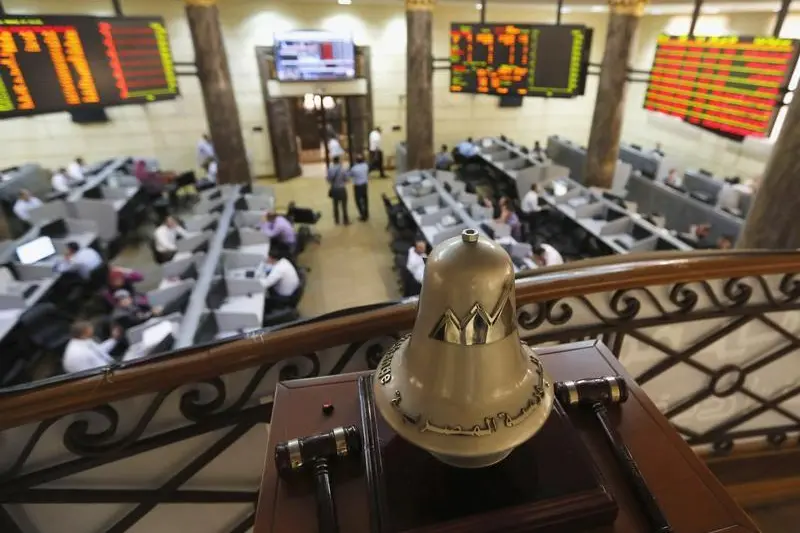PHOTO
Egypt has been garnering billions worth of investments from sovereign funds, with a concentration from the GCC region in particular. Buy why could GCC sovereign funds be eyeing Egyptian equities? And is now surely the right time for Egypt to be selling so many assets in the first place?
The Sovereign Fund of Egypt (TSFE) has been successful in attracting investments worth $3.3 billion from Arab sovereign funds in 2022, Head of the Investment sector at TSFE Abdallah El-Ebiary said in a meeting with Prime Minister Mostafa Madbouly on August 25th.
The TSFE has attracted investments in both dollars and Egyptian pounds from the private sector in the fields of green hydrogen, tourism, real estate, antiquities development, industry, financial services, digital transformation, and education, El-Ebiary highlighted.
On August 10th, investment arm of the Saudi Public Investment Fund (PIF), Saudi Egyptian Investment Co, acquired minority stakes in four companies listed on the Egyptian Exchange (EGX) at a value of $1.3 billion. The four EGX-listed companies are namely, Abu Qir Fertilizers and Chemicals Industries Company (ABUK), Misr Fertilizers Production Company (MOPCO) (MFPC), Alexandria Container and Cargo Handling Company (ALCN), and e-finance for Digital and Financial Investments (EFIH).
Meanwhile, on August 4th, PIF launched the Saudi Egyptian Investment Company (SEIC) with the aim to increase PIF’s access to investment opportunities across the various sector in Egypt.
PIF, in cooperation with TSFE, had announced earlier in March of this year that it aims to pump investments worth $10 billion during “the coming period.”
On the other hand, one of Abu Dhabi's sovereign funds, Abu Dhabi Developmental Holding Company (ADQ), invested about $1.8 billion back in April to acquire shares of five major publicly traded Egyptian companies.
The five companies that were previously state-owned are e-payment platform Fawry, Alexandria Container and Cargo Handling Company, Abu Qir Fertilizers, the Commercial International Bank (CIB) and Misr Fertilizers Production Company.
In a poll conducted by Arab Finance, 79% of the respondents said that they do not think that it is the right time to sell assets to GCC sovereign wealth funds.
One of the poll takers tells Arab Finance that this does not mean that selling assets to GCC sovereign wealth funds is a bad idea altogether, emphasizing that “it could simply mean that it is just not the right time.”
The reason why people could think so mainly goes back to the Egyptian Exchange (EGX) performance, the respondent said, “but I do not think someone would say no to [any kind of] investments in general.”
Meanwhile, a financial analyst that required anonymity, attributed the motives behind these acquisitions to Egypt’s attractive climate as pitfall for a seller may seem lucrative to a buyer. This stipulated each company’s prices to be much less than their fair value; “The sovereign funds must have had a positive outlook for these companies as their shares are extremely undervalued and can perform much better,” the analyst indicated.
“So why these companies in particular? Simply because at that time they had the highest market caps and a robust financial performance in terms of operations and profits.”
On the other hand, economics expert and professor Atef Andrawes tells Arab Finance “We need foreign direct investments (FDIs), other forms of investment are mostly hot money that does not have a long-lasting effect.”
One of the most important forms of FDIs prevails when the state exits its assets for foreign investors. This could come in two forms: hiring strategic investors to run a certain project or listing state companies on the EGX through sovereign funds, Andrawes says.
TSFE is playing a vital role in implementing the state’s ownership policy document, as per the directives of President Abdel Fattah El-Sisi, regarding attracting FDI of $40 billion within four years, El-Ebiary previously said.
It is still a very long way for TSFE to unlock its full potential, Andrawes explains, attracting regional sovereign funds and regional investments is the first step. However, this is all part of bolstering regional ties and geopolitical agendas that could later evolve into regional economic integration that serves a bigger purpose, he concludes, hinting that a vision like this could perhaps transform into an organization such as the European Union.
The UAE has topped the biggest Arab sovereign funds in terms of investments, with more than $700 billion pumped in other assets worldwide, coming in the third place globally. On the other hand, Saudi Arabia came in the third place regionally and the sixth globally, with investments worth $620 billion.
PIF had more recently announced buying shares in conglomerates such as Meta, Amazon, BlackRock, JPMorgan and Alphabet, the owner of Google. The fund has reportedly doubled its bets in tech companies, despite the decline in their valuations.
Headed by Saudi Crown Prince Mohammed bin Salman, the fund is investing in stocks of companies listed on international stock exchanges, as it seeks to achieve its goal of doubling its assets by 2025. This coincides with Saudi Arabia doubling its oil income during the second quarter of the year, as high crude oil prices are expected to give the Kingdom its first budget surplus in about a decade.
Copyright © 2022 Arab Finance Brokerage Company All rights reserved. Provided by SyndiGate Media Inc. (Syndigate.info).




















